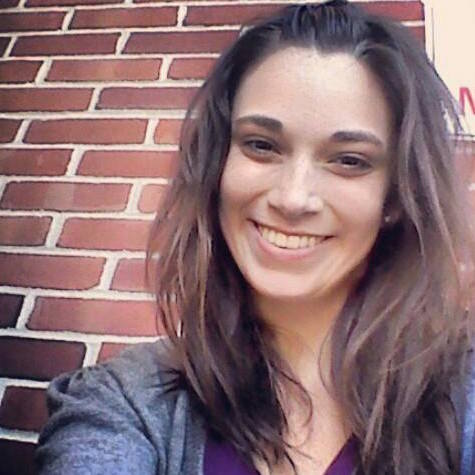Is the story of Christmas so much more than any holiday can contain?
Here, MA in Counseling Psychology student Rebekah Vickery writes about the tension between our hope for peace and our chaotic, divided world—and about what the birth and life of Jesus reveals about holy anger, living amidst trauma, and hoping for a new world.
One of the core words of Advent, peace, feels like a jarring antithesis of this city’s transitional trauma. In the 15 months that I have lived in this place, I have seen buildings rise, streets become more crowded, and financial burdens grow greater. I am still in the liminal space of learning to call this place home, and yet I can feel the sorrow, panic, and angst at the ways in which neighborhoods are changing at a breathless pace. If I am affected by the chaos of the rapid transitions, then how much more are those individuals who have called this place home for years, decades, or generations? And then there is the ongoing grief of indigenous generations who called this ground home long before the city set its roots, forever changing the landscape. It seems that the words of the Hebrew prophet Jeremiah still resonate in these streets: “They have healed the wound of my people lightly, saying ‘Peace, peace,’ when there is no peace” (Jer. 6:14, ESV). And so the prayer of Advent lingers with me still:
Oh come, oh come Emmanuel.
While I sense the chaos in this city and the ways that it is placated by those in power, I am also increasingly aware of the ways that I have spoken those words over myself: ‘peace, peace.’ It is, in a way, similar to the false prophets who attempted to bind wounds lightly and minimize anger in the name of a dismissive peace. I have anger in the midst of the chaos, because my body instinctively knows that this is not how it was meant to be. City streets were meant to be paths leading home. Communities were meant to be rooted together. Growth is meant to happen slowly, in a nurturing and safe process. I was meant to live in peace. And yet, I am finding that anger is not the antithesis to peace. I have recently and surprisingly found comfort in Jesus’ fury as he throws tables in the temple. I am learning that His actions are not out of an uncontrolled rage, but instead are a way of proclaiming with just and holy anger that this is not how it is meant to be. The temple is not meant to be a place of commerce, but instead a place of prayer. Cities are not meant to be places of chaos, but instead places of refuge. Families are not meant to be places of harm, but instead places of nurture. My body is not meant to be a place of trauma, but instead a place that experiences the goodness of love.
“I have anger in the midst of the chaos, because my body instinctively knows that this is not how it was meant to be.”
Oh come, oh come, Emmanuel.
I love C.S. Lewis’ depiction of the wild lion, Aslan.
“Then…after a pause..the deep voice said, ‘Susan.’ Susan made no answer but the others thought she was crying. “You have listened to fears, child,” said Aslan. “Come, let me breathe on you…Are you brave again?”
“A little, Aslan,” said Susan. (Prince Caspian, 1951, HarperCollins Publishers)
I find my own heart responding similarly when I encounter Jesus in the midst of the broken places. I find a little peace. It is not the violent attempt at peace that places a hand over the mouth of a crying child to stifle the cries, or the minimizing peace that says, “Stop crying, you’re fine.” The peace of Emmanuel is the peace of being held tightly by the person who is also crying. The suffering is not ended, but it is joined. And there is the hope that this God-with-us who rages and grieves on our behalf, has come once, is coming now, and will come again to make all things new.
Oh come, oh come, Emmanuel.
I breathe. I grieve. I rejoice in the disruption of God entering a world of trauma, becoming vulnerable to it in his humanity. And I also mourn the way that it seems to have only made it a little better. All things are not yet made new. I am living in the And Now and the Not Yet.
Emmanuel is here in the sorrow, and Emmanuel will come again with joy.
So we journey on, with tear-stained faces and hopeful hearts. Let us not grow weary, but instead continue hoping and moving toward the day when steadfast love and faithfulness will meet; righteousness and peace will kiss each other (Psalm 85:10).
Henry Wadsworth Longfellow wrote “I Heard The Bells on Christmas Day,” in 1863; a time in which his country was fragmented with violence. Over a century later, as I find myself in a city and country in which chaos seems to be the final word, and as I learn to listen to the chaos in my own body, I find comfort and resonance in the words.
And in despair I bowed my head;
“There is no peace on earth,” I said; “For hate is strong, and mocks the song
Of peace on earth, good-will to men,”
Then pealed the bells more loud and deep: “God is not dead; nor doth he sleep!
The Wrong shall fail, The Right prevail,
With peace on earth, good-will to men!”
Oh come, oh come, Emmanuel.


